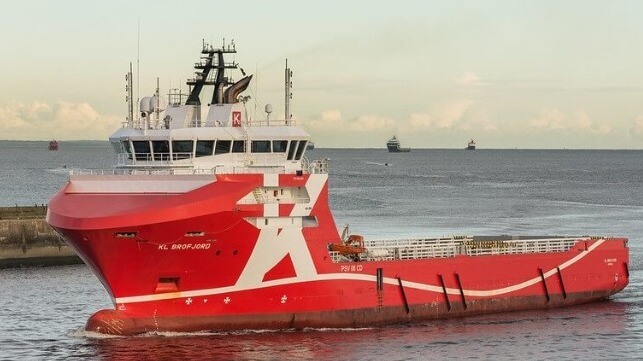T&E: EU Carbon Pricing Scheme Lets Too Many Small Ships Off the Hook

Based on a new study, the European NGO Transport & Environment says that the European Commission's proposed rules for carbon emissions will let too many small vessels off the hook, allowing millions of tonnes of CO2 to go untaxed.
The EC's proposal for including shipping in the EU Emissions Trading System (ETS) applies only to vessels over 5,000 GT in size. There are additional carve-outs for vessels in certain industries, including fishing vessels and OSVs. By T&E's count, this means that more than half of Europe's ships and 20 percent of EU CO2 emissions from shipping will be exempt from the regulation. At the time that the EC released its proposal, it estimated that just 10 percent of emissions would be exempted by these exclusions.
The objective, according to the EC, is to reduce the administrative burden of implementing carbon pricing for its fleet by focusing on high-emitting vessels. Gross tonnage is a widely-used measure for differentiating among vessel classes and setting regulations, but T&E argues that for CO2 emissions, it is a flawed choice. The NGO called for setting a regulatory threshold based on annual CO2 emissions, with ETS regulation kicking in at 1,000 tonnes per year. This would cover an additional 12 percent of EU shipping emissions, T&E estimates.
"[The EC's] proposal based on arbitrary loopholes lets too many heavily polluting vessels off the hook. The EU must rethink its shipping laws to ensure that millions of tonnes of CO2 don’t go unregulated," said T&E sustainable shipping officer Jacob Armstrong in a statement.
T&E and other environmental groups have also criticized the EU ETS proposal for inclusion and promotion of fossil LNG and biofuels. According to a T&E study, the current proposal could result in the use of LNG and biofuels for more than half of the energy used by ships calling at EU port by 2035.
European shipowners have called for additional changes, particularly the introduction of a "polluter pays" clause, which would shift the burden of payment onto the operator or charterer (the entity controlling fuel consumption). Under the existing proposal, the shipowner would be responsible for payment of the ETS bunker tax, even though they have little control over fuel usage; their ability to pass the cost on to the charterer would depend on market forces and commercial negotiation.
The European Community Shipowers' Associations (ECSA) has also called for revenues collected by the ETS scheme to go towards clean-shipping R&D and subsidies for zero-carbon fuels.
Regardless of which ships are covered and which entity pays, a recent study by UK-based think tank UMAS suggests that the EU ETS scheme will not have the desired effect. Even at a carbon price of $67 per tonne, UMAS found that the ETS "would not make a significant impact to close the gap between fossil shipping fuels and zero-carbon fuels." A price level of about three times that amount - and a greater coverage share for emissions from international voyages - would be required to make an impact, UMAS found.
